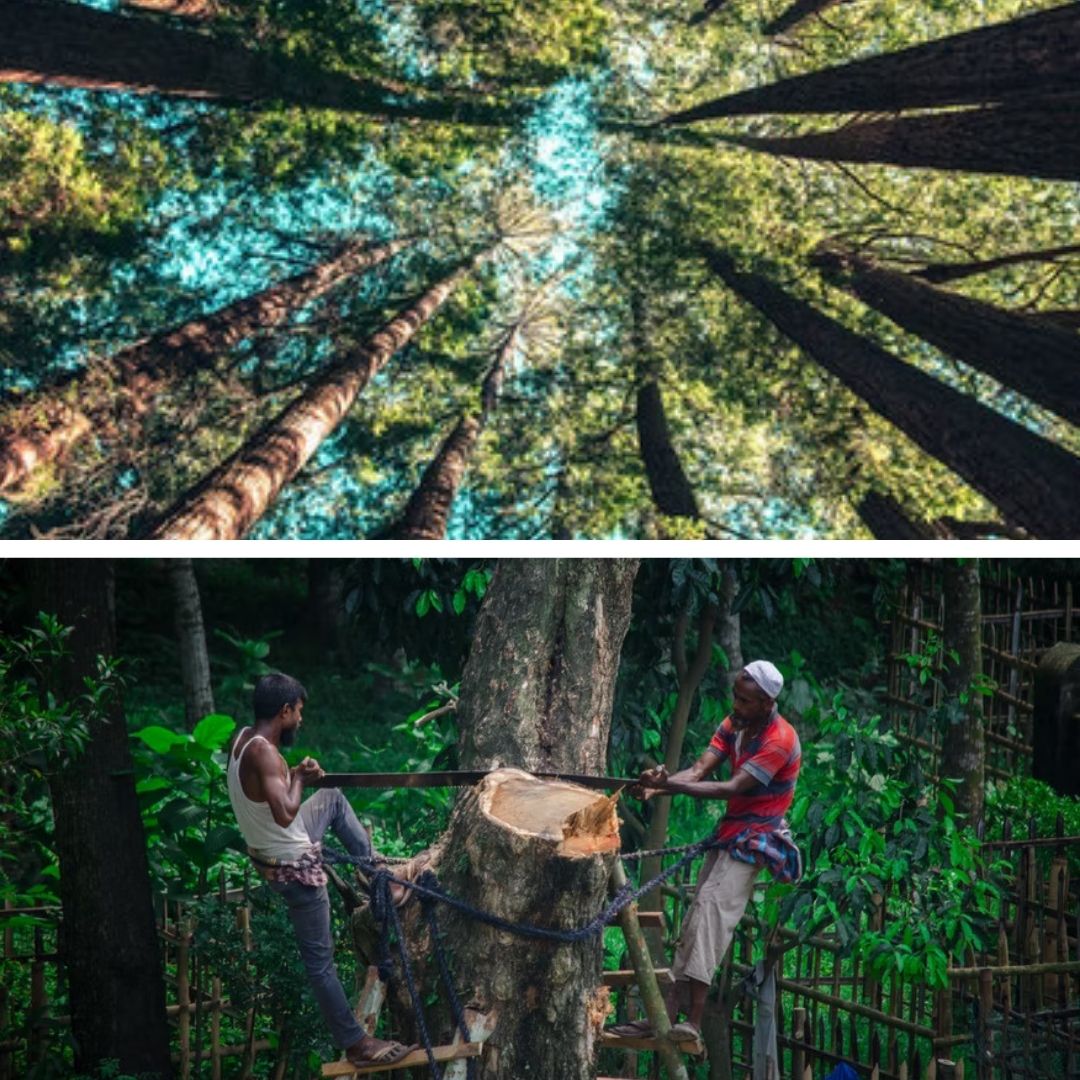6,000 Deodar Trees To Be Axed In Uttarakhand's Uttarkashi, Villagers Up In Arms
Writer: Akanksha Saxena
I am a budding journalist who loves to write stories that have the ability to connect with people.
Uttarakhand, 26 April 2022 6:51 AM GMT
Editor : Snehadri Sarkar |
While he is a massive sports fanatic, his interest also lies in mainstream news and nitpicking trending and less talked about everyday issues.
Creatives : Akanksha Saxena
I am a budding journalist who loves to write stories that have the ability to connect with people.
The trees are situated in the Bhagirathi Eco-Sensitive Zone (ESZ) and have an abysmal survival rate after transplantation. The locals fear that the deforestation could result in a 'Kedarnath-like' calamity.
The Uttarakhand government has drawn flak for its decision to fell 6000 deodar trees situated in the Bhagirathi Eco-Sensitive Zone (ESZ). Currently, the villagers and forest activists in the state's Uttarkashi district have raised concerns and protested against the move to widen the Char Dham all-weather road.
The locals in the area fear that deforestation will lead to a 'Kedarnath-like' disaster. Also, the state forest department's 'developmental' move can adversely impact biodiversity. Being a sensitive area, such activities will affect around 25 streams of the Gaumukh glacier, which can lead to dangerous repercussions in the state.
Protest Against Government Move
One of the main reasons behind the criticism is the transplanting of Deodar trees. According to The Times of India, environmentalists think the process is tedious as the trees are native to the Himalayas. They require a particular temperature and soil conditions to flourish. "The survival of transplanted deodar trees isn't promising. These trees grow at high altitudes of ,5000-10,000 feet where sunshine is minimal," Sanjay Rana activist told the news publication.
Also, several activists raised alarms about the actual number of trees to be cut. A member of an NGO called 'Himalaya Bachao Abhiyaan named Suresh Bhai said, "The forest department will fell 2.8 lakh trees and several shrubs, some of them with medicinal values. The department has given the official number of 6000 as they count only those trees with a diameter of 10 metres or above." Further, he added that the deforestation's effects will not be limited to the eco-sensitive zone but will also spread to 88 villages in the nearby area.
"In 1991, Uttarkashi recorded its deadliest earthquake that claimed more than 700 human lives and affected over 3 lakh people. The felling of trees may lead to a calamity of that proportion again. The Central Government must leverage the remote sensing technology to re-plan the entire project and accurately assess the damage of their current proposal," he states.
Despite the criticism, the government is sticking with their decision. The forest department assured us that the deodar trees would be transplanted. However, their reassurances are insufficient as the local villagers fear the worst. Many of them have written letters to the CM Pushkar Singh Dhami and other top brass of the Indian government but have not received any response.
Also Read: India Lost 14% Tree Cover Amid COVID Pandemic, Rainforest Destruction Went Up To 12% In 2020: Report
 All section
All section















